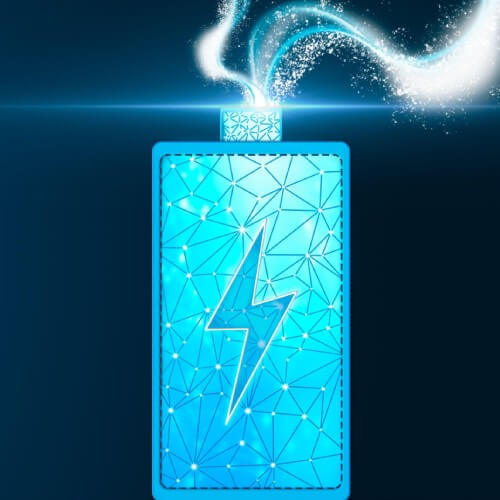Energy crisis raises enterprise network costs, sharpens sustainability focus
An Arelion report found most companies saw energy costs rise above contract terms, causing them to become a prime concern, which has pushed many to seek greater energy efficiency.

Arelion, a Swedish provider of fiber services and infrastructure, has released a report detailing the impact of rising energy prices on operators of enterprise networks. Most saw their energy prices go up and say energy costs are a key concern. The energy crisis has, however, also spurred investment in energy efficiency and sustainability.
The report is based on responses provided by 324 representatives of enterprises with over 4,000 employees to a survey conducted by Savanta in the second half of 2022. Its participants are involved in making decisions about network development strategies at companies active in IT services, banking, manufacturing and engineering. The survey focused on the US, UK, France and Germany.
Arelion's data shows that 58% of companies saw energy prices rise on top of existing contract terms, with 53% of respondents saying high energy costs were the prime concern for network operations, with many voicing concern about the possibility of energy supply shortages. Overall, 45% of survey participants said energy costs caused them significant stress.
Figure 2:  Energy has been on many network operators' minds recently.
Energy has been on many network operators' minds recently.
(Source: Iván Jesús Cruz Civieta/Alamy Stock Photo)
Most companies – 82% – said energy costs have a moderate to high impact on the pricing of their services and only 11% said they reduced their use of networks to save money. At the same time, 61% of businesses increased investment in network operations.
According to the survey, another common reaction to the energy crisis was a greater commitment to energy efficiency and sustainability. More than half of the companies involved have accelerated or strengthened their sustainability measures, although another 29% report the energy crisis has impeded such efforts.
Transatlantic differences
Arelion also notes there are some significant differences between the countries surveyed. Its data shows 29% of respondents in the US said they had lost sleep over the impact of the energy crisis, compared to only 11% of their UK counterparts, 6% in Germany and 3% in France. Arelion attributes this to "cultural differences" and what it describes as an "always on" business culture in the US.
Another key difference is in the percentage of companies that passed higher costs on to customers. While 78% of the German companies surveyed did so, the number was lower in the US, at 57%. Arelion theorizes the reason may be that Germany's problems go deeper, as they are caused by efforts to reduce dependence on Russian gas, which accounted for 55% of gas imports in 2021, while the US has a relative abundance of domestic resources. According to Arelion, this explains why US leaders are more anxious about supply problems than they are about higher prices – it notes price increases in the US have been less steep than in Europe.
Figure 1:  Most companies have passed on growing energy costs.
Most companies have passed on growing energy costs.
(Source: Arelion)
Despite the slower rate of price increases, 73% of US businesses report plans to increase investment in energy efficiency, compared to 69% in Germany, 49% in the UK and 48% in France. A bigger percentage of US respondents also said they are boosting their efforts to become more sustainable than was the case among their European counterparts.
The nuclear option
Perhaps unsurprising is the gap in the perception of nuclear energy. Just over half of respondents in France, which has a long history of using large amounts of nuclear power, saw this type of electricity production as having the most potential to power network operations in future. Elsewhere, businesses seem less enthusiastic about the nuclear option, with 18% of respondents in both Germany and the UK calling it the most promising energy source.
This echoes the difference in government approaches. France, which has historically been reliant on nuclear power, has proposed rules that would speed up the construction of nuclear plants, in a U-turn from plans to limit the share of nuclear in the energy mix to 50%.
The German figure, however, still seems high given the country's shift away from nuclear power announced in 2011. Amid the current energy turmoil, however, German leaders have also been warming to nuclear energy.
Overall, solar is seen as the most promising energy source among respondents, which is surprising given its intermittent nature. The report remarks on this, saying it contrasts with the need for a consistent power supply to network equipment.
Arelion also comments on differences between industries. It notes there are greater opportunities for energy savings for companies in the manufacturing sector, which can translate into greater efficiency of its networks. Accordingly, most companies in this sector report the energy crisis has boosted their sustainability efforts.
IT companies and banks could, meanwhile, find it harder to cut back on energy consumption by vital network and data center infrastructure, according to Arelion.
Related posts:
— Tereza Krásová, Associate Editor, Light Reading
Read more about:
EuropeAbout the Author(s)
You May Also Like












